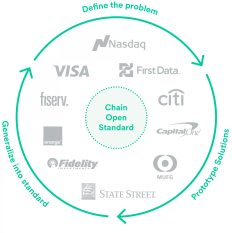 Steemit, the social media platform where everyone gets paid to post online, has just rolled out it’s BETA. Led by CEO Ned Scott, formerly in private equity, and CTO Dan Larimer, the creator of Bitshares – Steemit today released a publicly available beta version of a social media content aggregator designed to reward content creators and curators with cryptocurrency.
Steemit, the social media platform where everyone gets paid to post online, has just rolled out it’s BETA. Led by CEO Ned Scott, formerly in private equity, and CTO Dan Larimer, the creator of Bitshares – Steemit today released a publicly available beta version of a social media content aggregator designed to reward content creators and curators with cryptocurrency.
Steemit, which is powered by Blockchain technology, uses forms of a new currency called Steem to reward users that upload articles, images, commentary and blogs, while rewarding users for sourcing and upvoting popular content. The earlier a person up-votes a post that becomes popular, the more they are rewarded. Users are paid half in “Steem Power,” a vesting currency that supercharges voting power, and half with Steem Dollars, which can be exchanged for USD.
Source: New Blockchain Social Media Platform STEEMIT Pays You To Post and Vote Online – Blockchain News





 Jack Browning recently posted a great analysis regarding whether a new technology like the blockchain could revitalize the first sale doctrine under copyright law. Jack used a terrific analogy to explain the first sale doctrine, from the Hugh Jackman movie The Prestige. In the film, in order to create the illusion of teleportation, Jackman’s character – who had access to a cloning device only (just watch the movie, okay?) — had to murder his own duplicate each time one was created, so that there was only one copy in the world at any given time.
Jack Browning recently posted a great analysis regarding whether a new technology like the blockchain could revitalize the first sale doctrine under copyright law. Jack used a terrific analogy to explain the first sale doctrine, from the Hugh Jackman movie The Prestige. In the film, in order to create the illusion of teleportation, Jackman’s character – who had access to a cloning device only (just watch the movie, okay?) — had to murder his own duplicate each time one was created, so that there was only one copy in the world at any given time. Concurrent Media Strategies, LLC, publisher of the
Concurrent Media Strategies, LLC, publisher of the 
 Blockchain technology is what enables Bitcoin to allow financial exchange without a middleman. It is effectively a decentralized database where participants follow a protocol to record the ownership of tokens of value and their exchange, without the need for a central entity like a bank to provide trust.
Blockchain technology is what enables Bitcoin to allow financial exchange without a middleman. It is effectively a decentralized database where participants follow a protocol to record the ownership of tokens of value and their exchange, without the need for a central entity like a bank to provide trust.